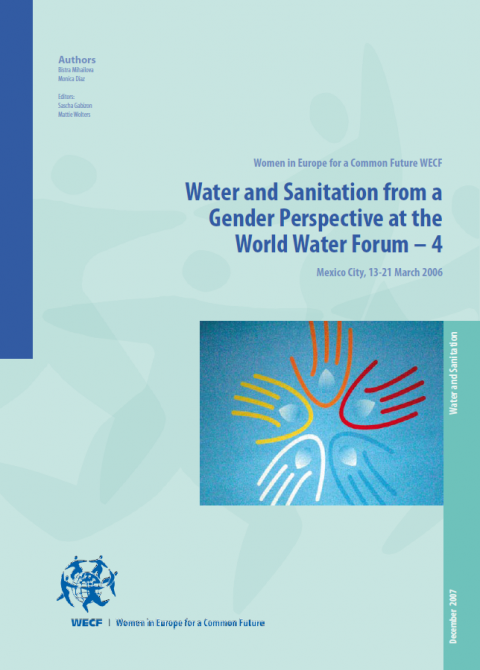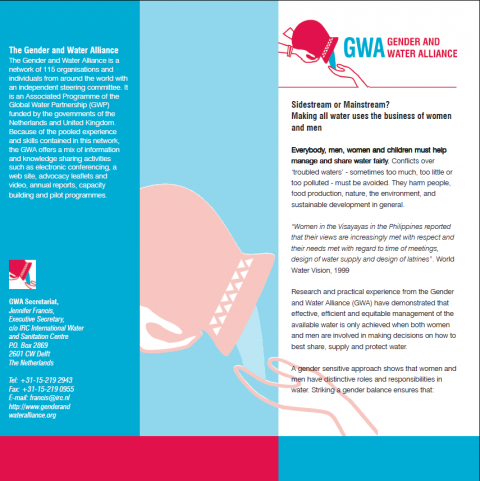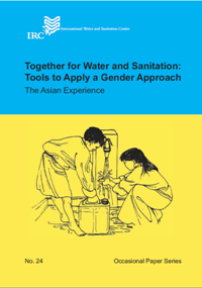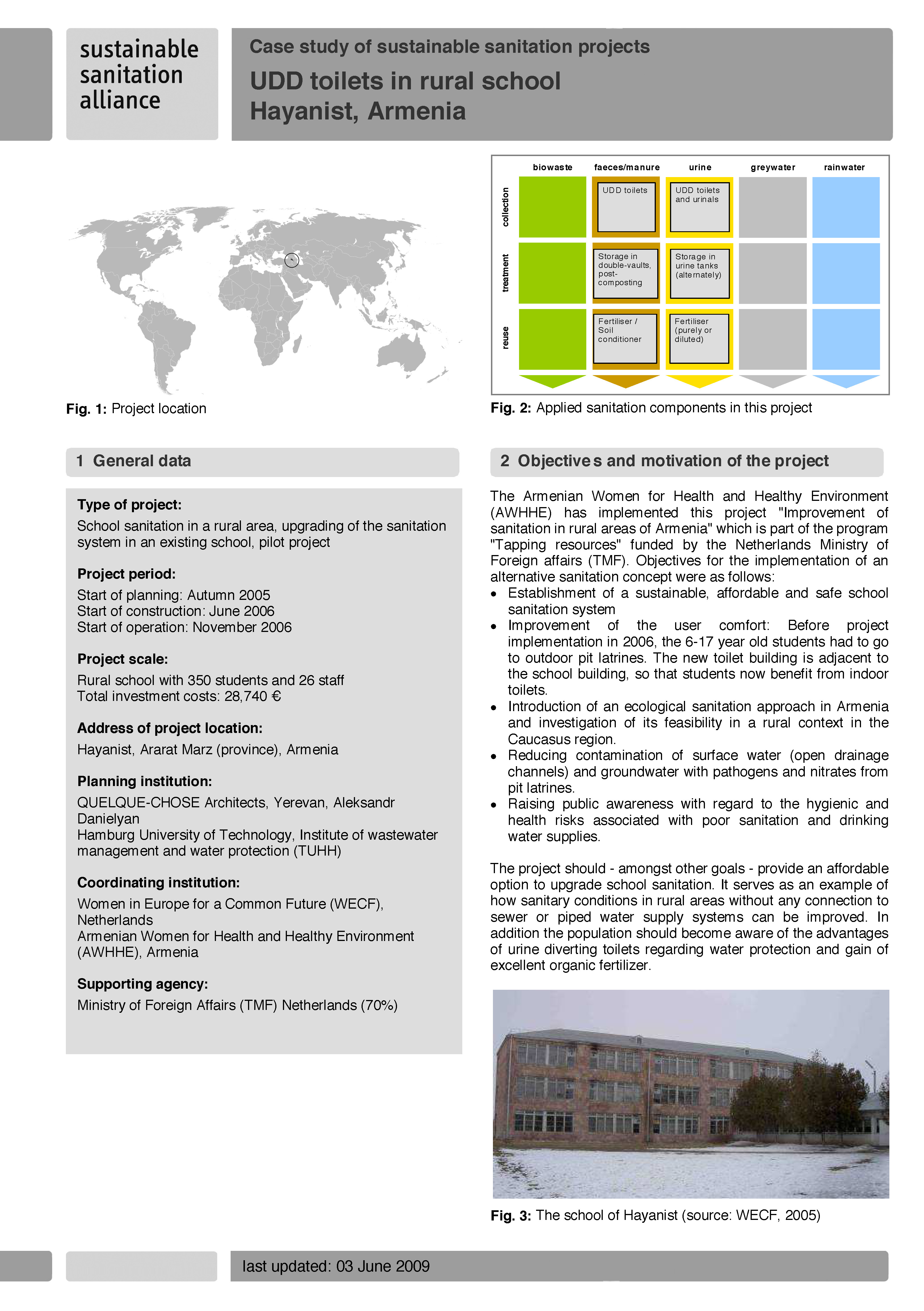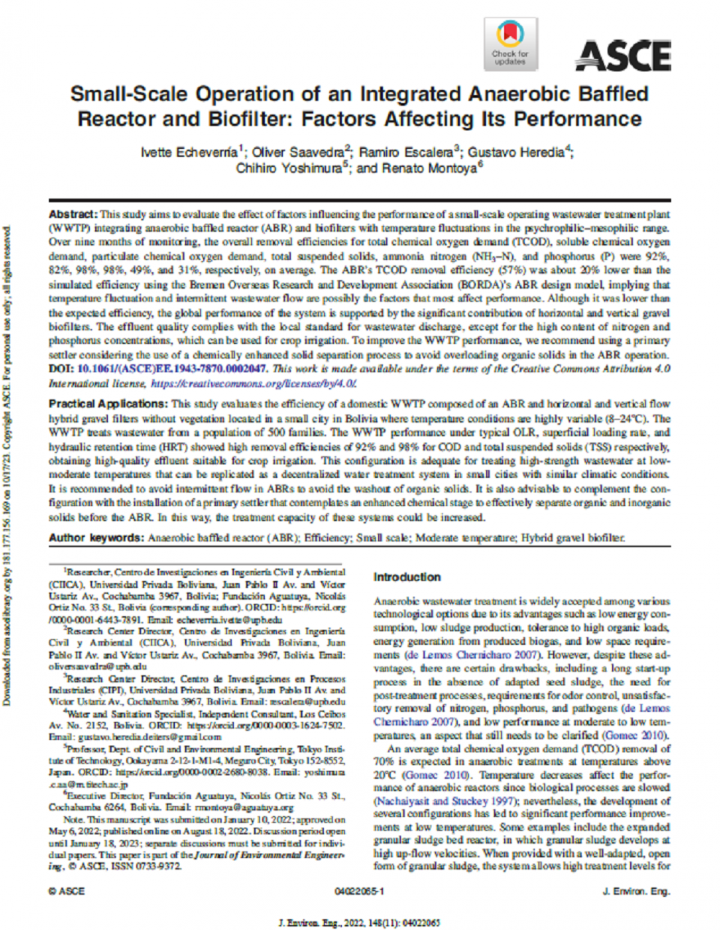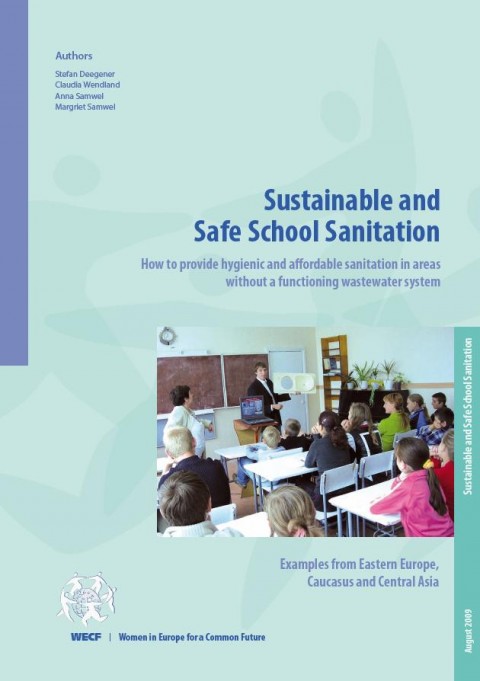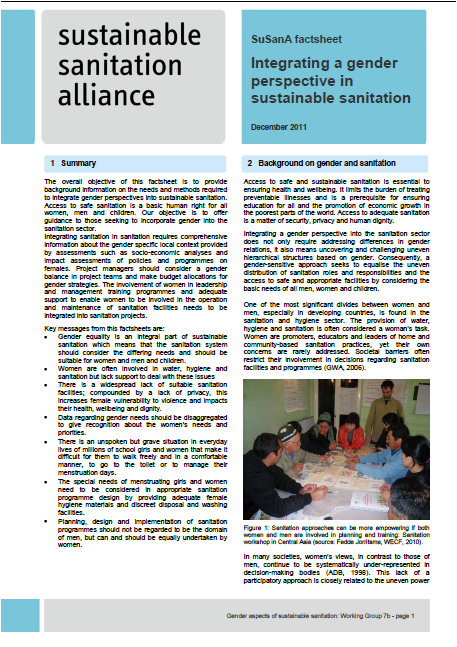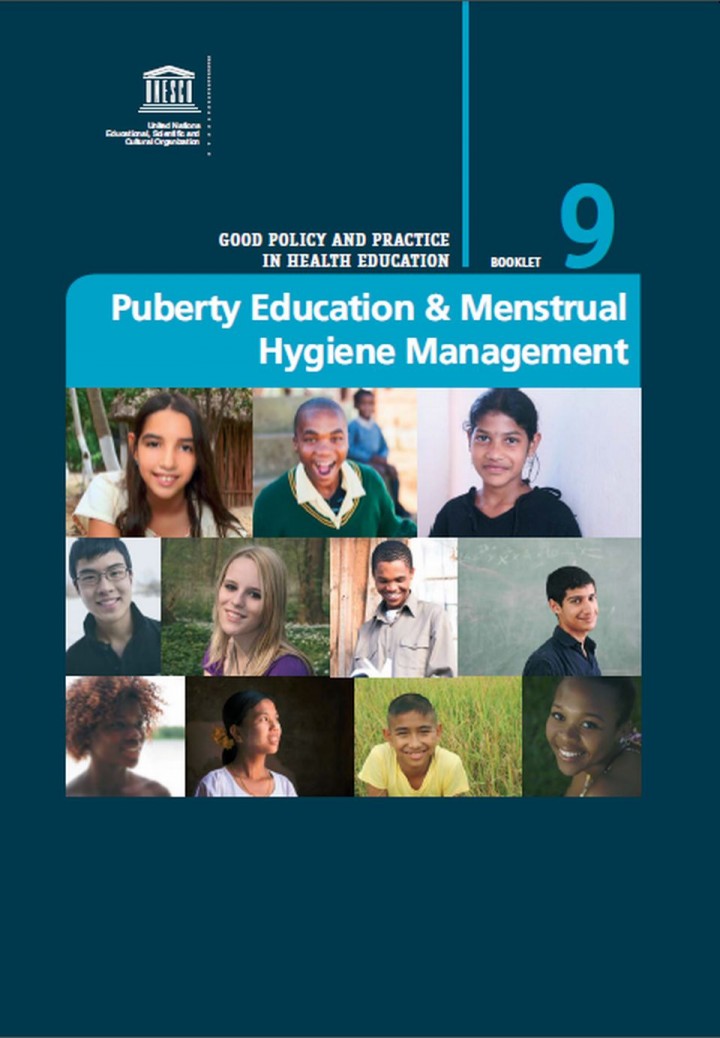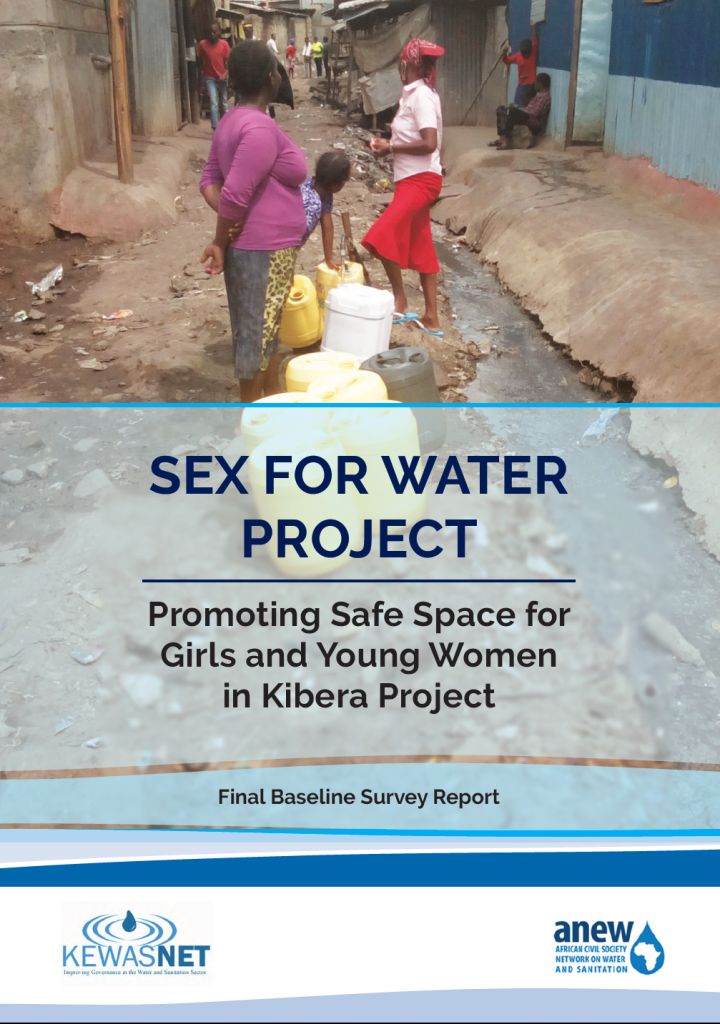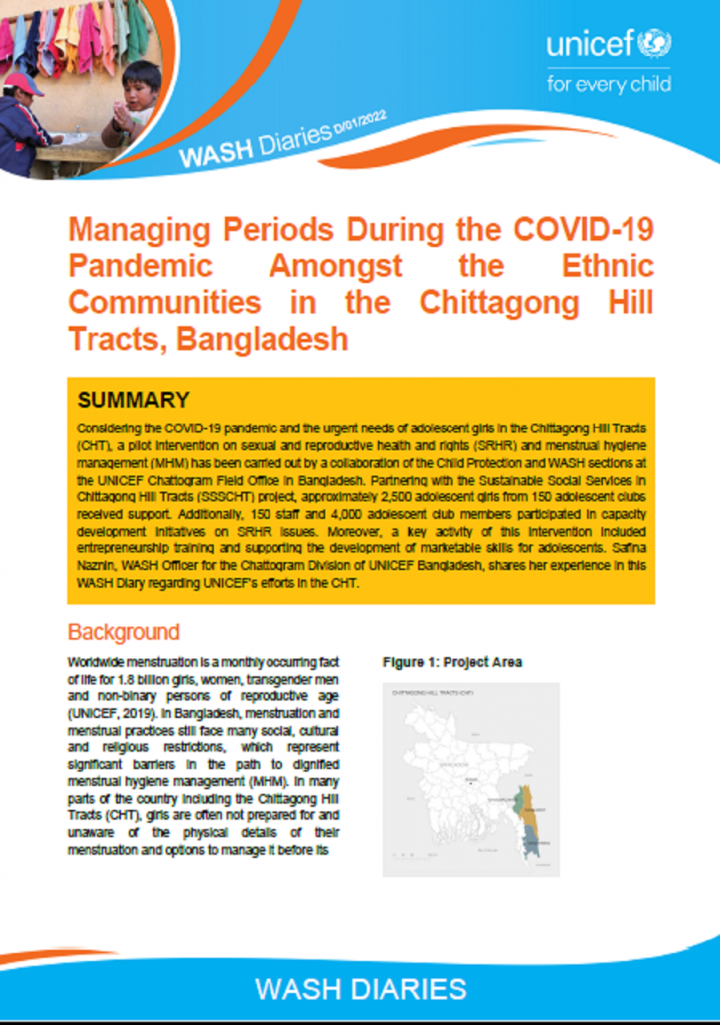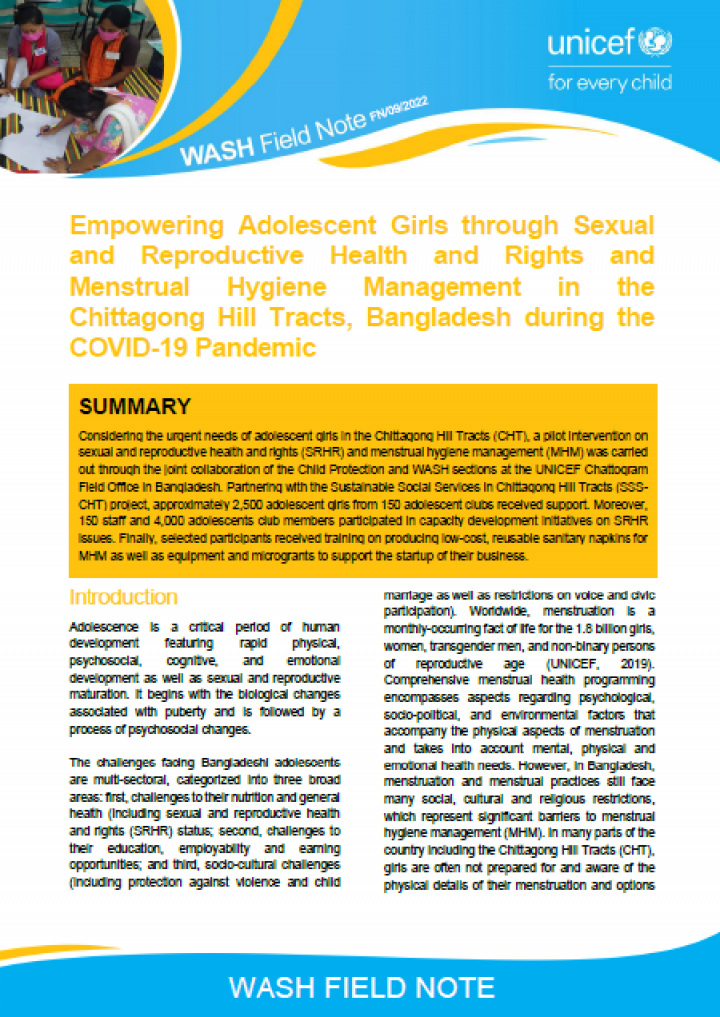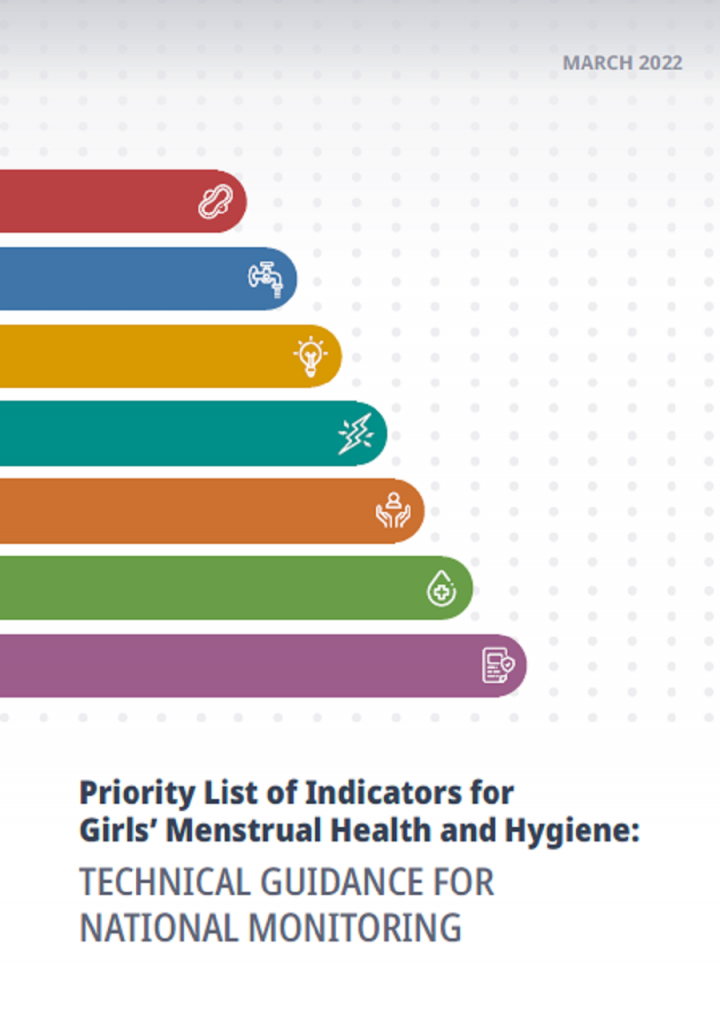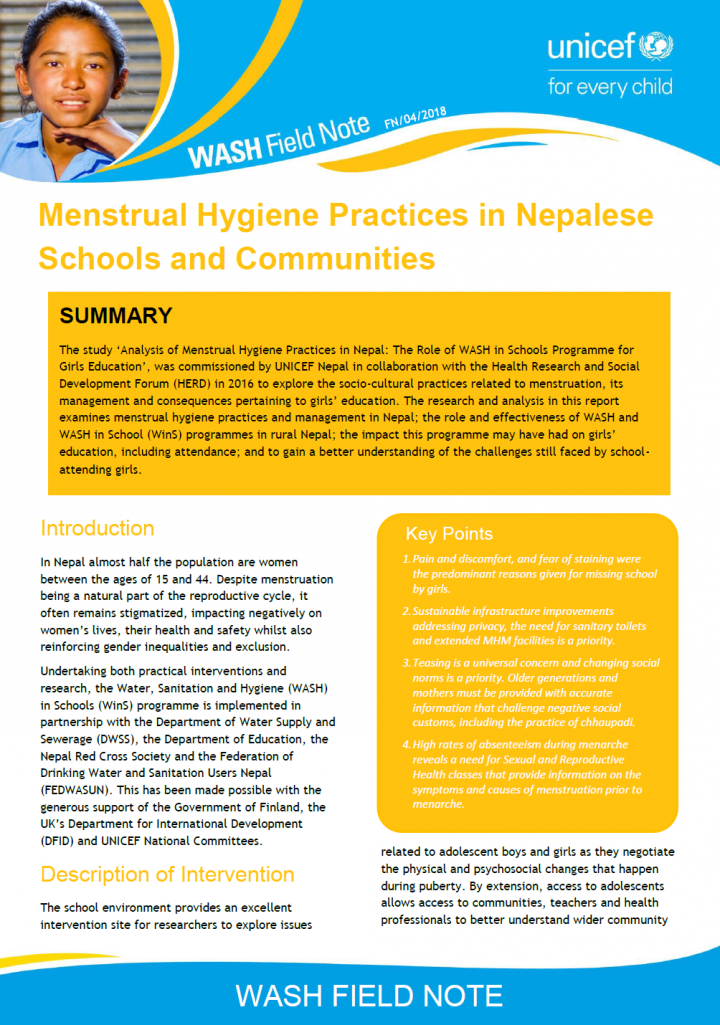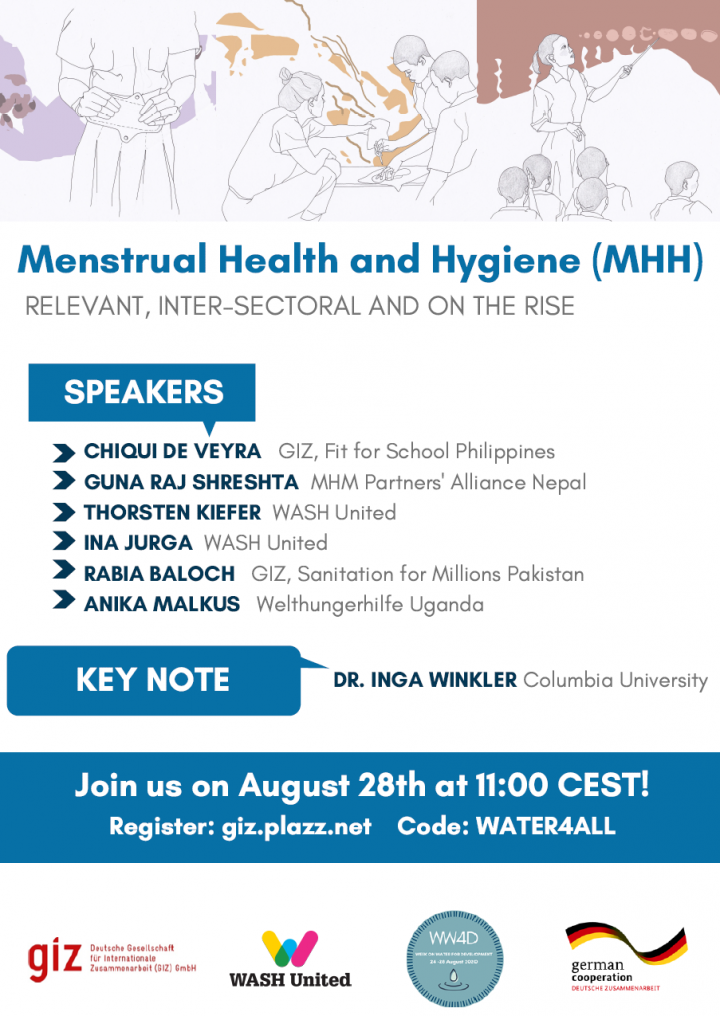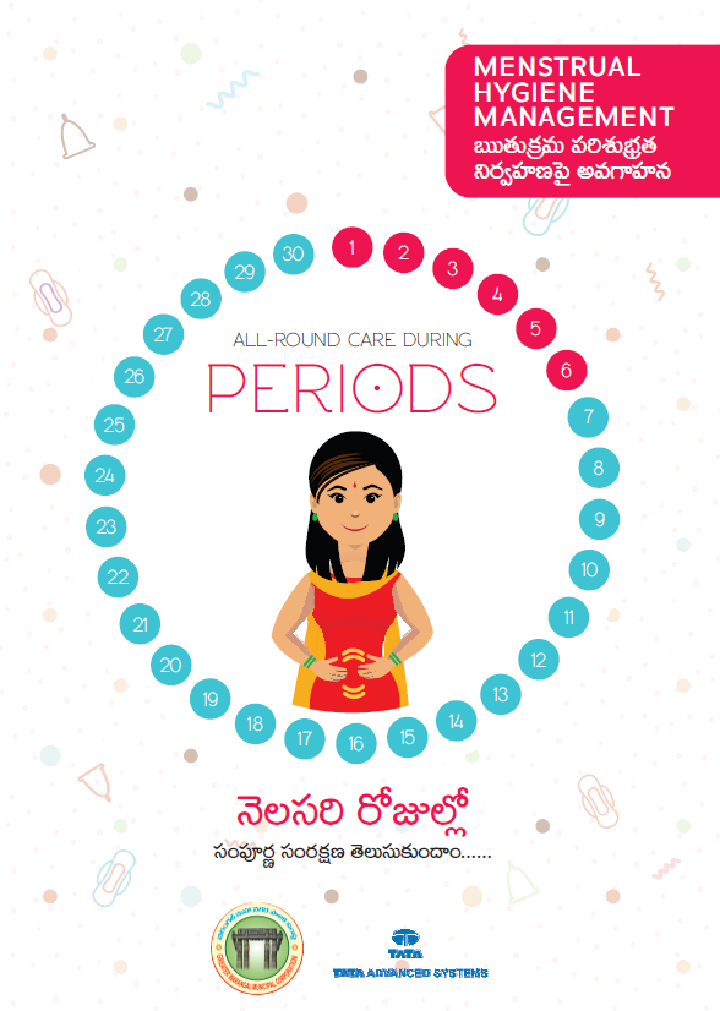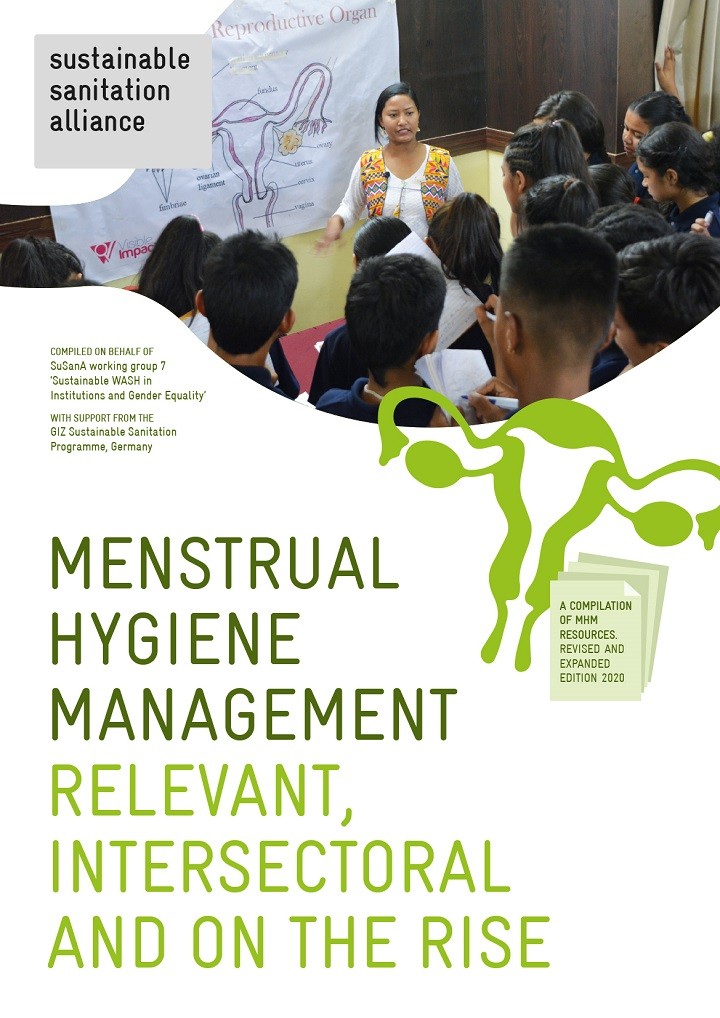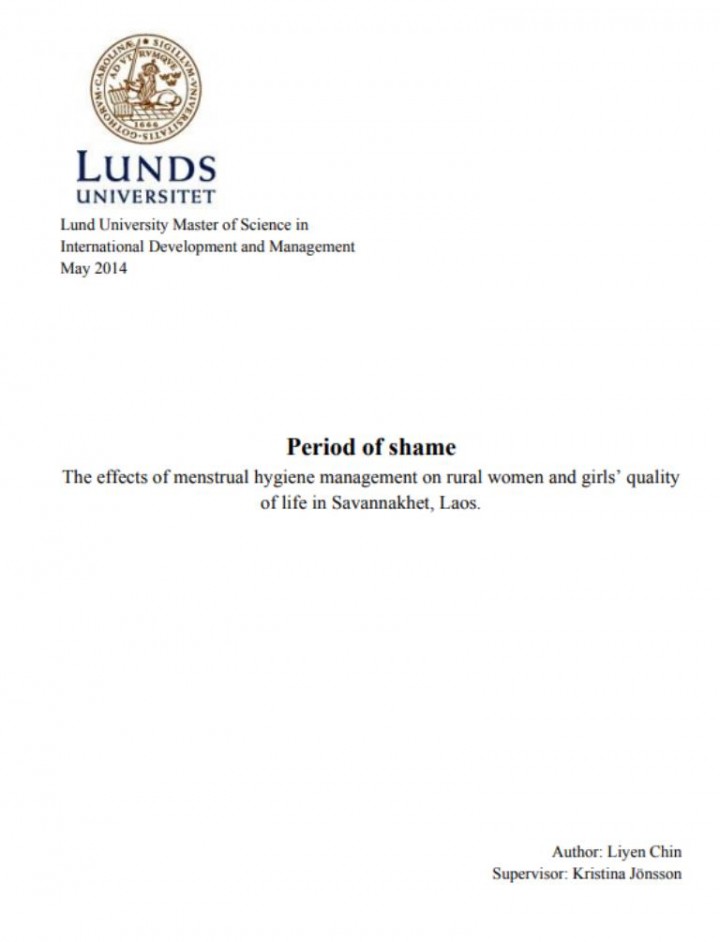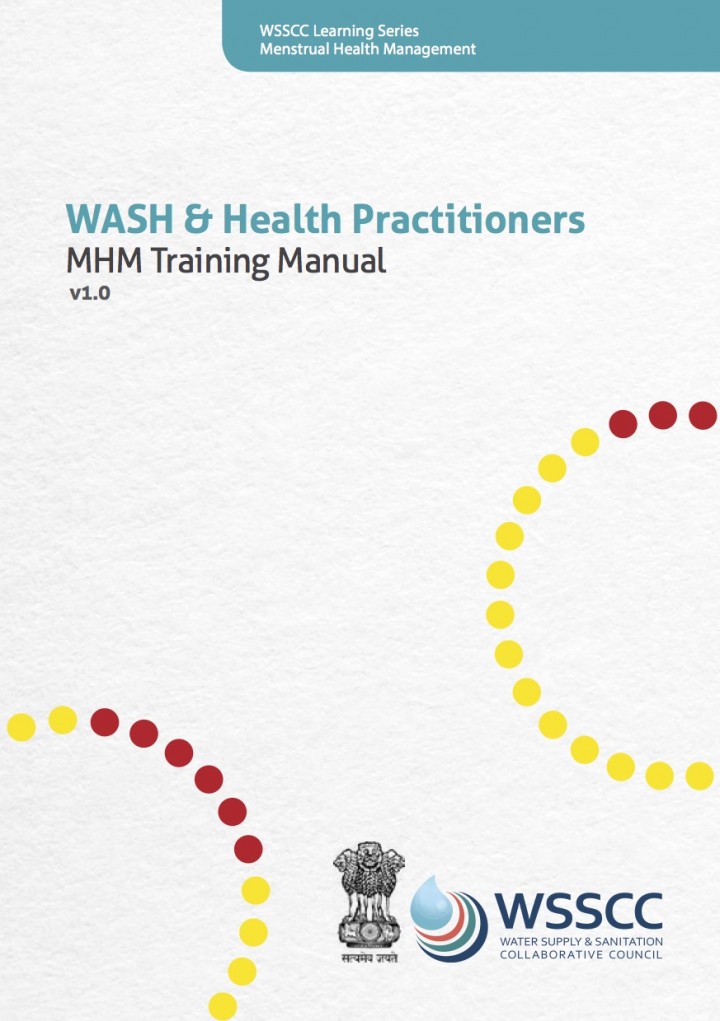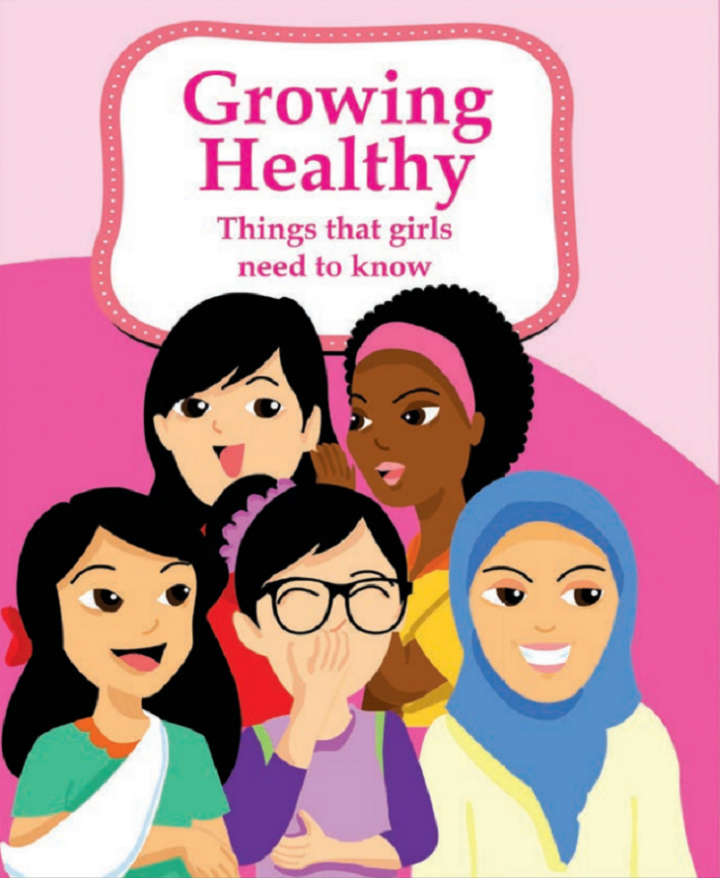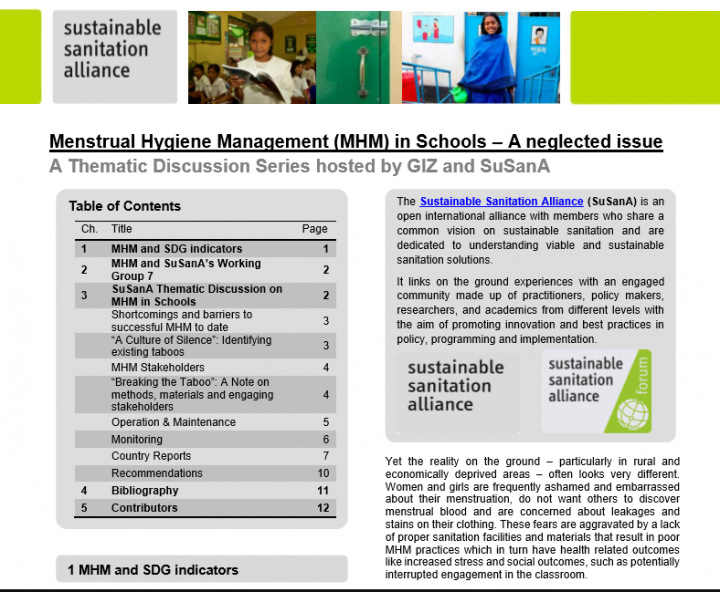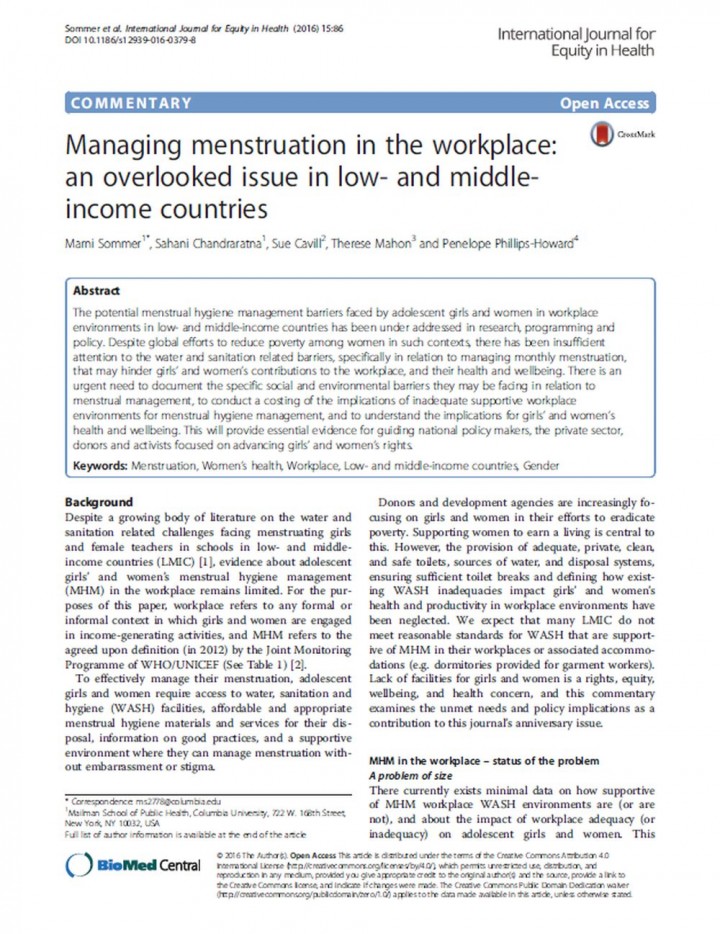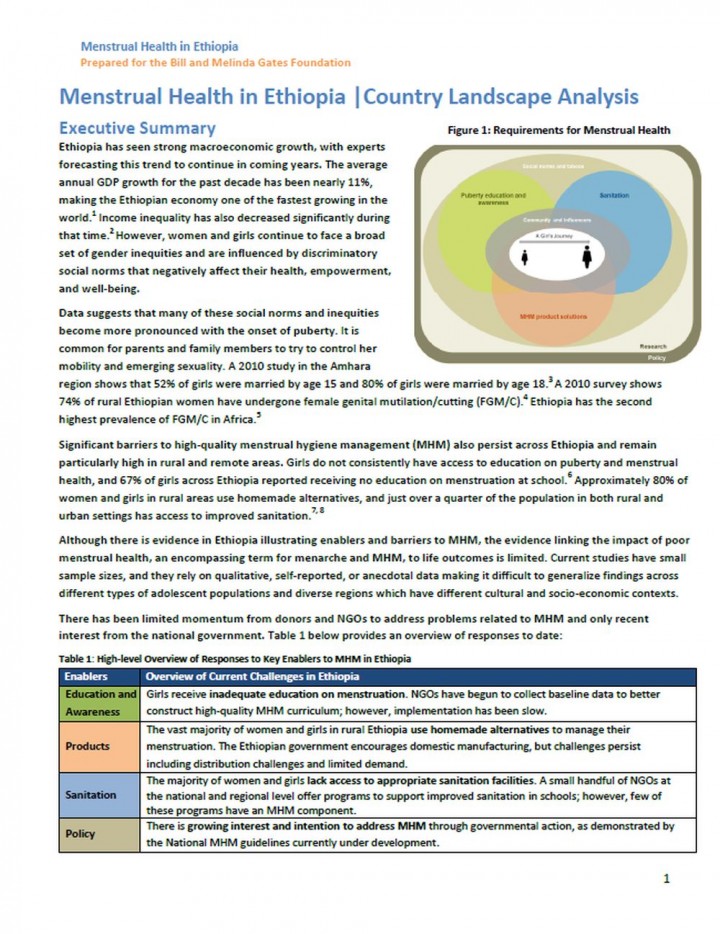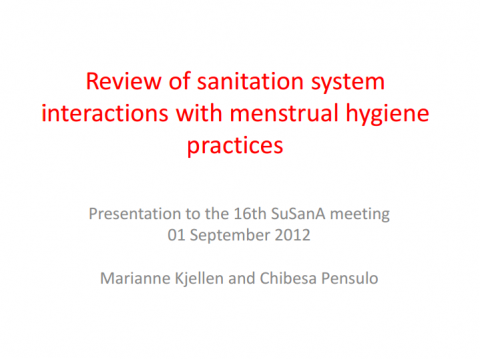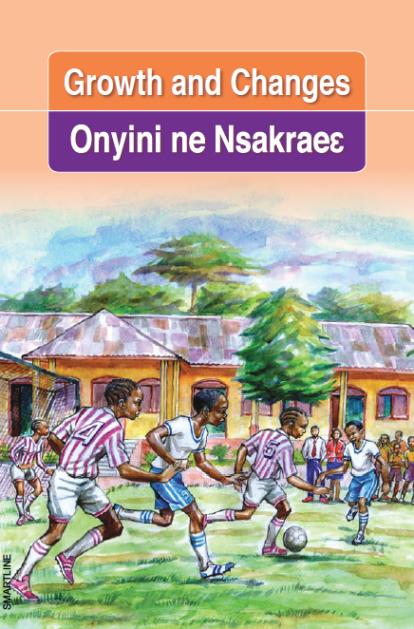Searching for information on Sanitation Workers?
The Sanitation Workers Knowledge + Learning Hub is the best source for all current news, trends, articles and updates on sanitation workers rights around the world.
This study aims to evaluate the effect of factors influencing the performance of a small-scale operating wastewater treatment plant (WWTP) integrating anaerobic baffled reactor (ABR) and biofilters with temperature fluctuations in the psychrophilic–mesophilic range. Over nine months of monitoring, the overall removal efficiencies for total chemical oxygen demand (TCOD), soluble chemical oxygen …
This booklet is the ninth in a series of publications that address key themes of UNESCO’s work in HIV and health education. It is one of several contributions to school-based health promotion that UNESCO has produced to complement our work in HIV and sexuality education. The booklet lays out the context and rationale for education sector involvement, the characteristics of good quality puberty …
The Sex for Water (SFW) Baseline Report assesses and provides evidence of existence of sextortion practice in the water, sanitation and hygiene (WASH) sector for better intervention programming. It discusses the linkages between access to WASH services, corruption and sextortion. It also highlights other aspects of sexual abuse and the associated response and redress mechanism.
The survey was …
Considering the COVID-19 pandemic and the urgent needs of adolescent girls in the Chittagong Hill Tracts (CHT), a pilot intervention on sexual and reproductive health and rights (SRHR) and menstrual hygiene management (MHM) has been carried out by a collaboration of the Child Protection and WASH sections at the UNICEF Chattogram Field Office in Bangladesh. Partnering with the Sustainable Social …
Considering the urgent needs of adolescent girls in the Chittagong Hill Tracts (CHT), a pilot intervention on sexual and reproductive health and rights (SRHR) and menstrual hygiene management (MHM) was carried out through the joint collaboration of the Child Protection and WASH sections at the UNICEF Chattogram Field Office in Bangladesh. Partnering with the Sustainable Social Services in …
For a wholistic approach of any project, the gender dimension should be included. The Jaffna Healthy City Project is also not an exception. The one out of three-sub pillars of Healthy City Project is WASH in Schools. In a gender inclusive perspective, WASH in Schools included Menstrual Health and Hygiene (MHH). There are 10 schools from Jaffna city included for Jaffna Healthy City project. Out of …
There is growing global recognition of menstrual health and hygiene (MHH) as an important health, education, rights, and gender equality issue. As efforts to support MHH gain momentum globally, the lack of adequate validated indicators with related measures is a critical barrier to progress. At national level, the absence of standardized indicators and related measures limits understanding MHH …
The study ‘Analysis of Menstrual Hygiene Practices in Nepal: The Role of WASH in Schools Programme for Girls Education’, was commissioned by UNICEF Nepal in collaboration with the Health Research and Social Development Forum (HERD) in 2016 to explore the socio-cultural practices related to menstruation, its management and consequences pertaining to girls’ education. The research and …
MHH contributes to gender equality, better education and employment, and the realization of sexual and reproductive health and rights. In this session progress and success stories of MHH globally and within the German Development Cooperation were presented and opportunities for sustaining and scaling the momentum were discussed.
The menstrual movement has made progress in the recent years, …
Menstrual Hygiene Management is fundamental to the dignity and wellbeing of girls. Menstrual hygiene education, availability of water and toilets, safe sanitation facilities with access to sanitary products, are important factors enabling girls to attend school and lead a healthy life, not interrupted by menstruation.
This guidance booklet is an education resource to help girls to manage, with …
This compilation of MHM resources attempts to provide an overview of and categorise the key resources on MHM to date. By bringing together the growing body of resources, including research, case studies and information material for girls and boys, this publication intends to provide interested individuals and organisations with an overview of the most relevant publications on MHM.
The purpose of this thesis was to investigate how rural women and girls’ menstrual hygiene
management (MHM) affects their life-quality and performance in everyday life. The thesis
analysed the opportunities, abilities and motivation they had in performing MHM and how it
affected their social and economical opportunities. From this, conclusions were drawn on how
MHM affects their …
This manual was developed to sensitise WASH and health practitioners to the various issues associated with menstrual hygiene management. It equips professionals with important information, skills and tools for communicating with a variety of stakeholders, which can help them to promote menstrual management practices in their communities. By guiding participants through the step-by-step learning …
Menstrual Hygiene Management (MHM) refers to the way in which women and girls deal with their menstruation. Girls usually menstruate for the first time between the age of 10 and 15. Learning about menstruation is thus vital for secondary school students, but it is not too early to raise awareness in elementary school. Given the number of people affected by MHM in some way or another, it is …
The potential menstrual hygiene management barriers faced by adolescent girls and women in workplace environments in low- and middle-income countries has been under addressed in research, programming and policy. Despite global efforts to reduce poverty among women in such contexts, there has been insufficient attention to the water and sanitation related barriers, specifically in relation to …
This report seeks to understand:
(1) the current state of girls’ experience with menarche and MHM in Ethiopia,
(2) the donor, government, and NGO responses to girls’ needs, and
(3) opportunities for research, advocacy, and programming to better address these needs.
This complements a Global Landscape Analysis and is one of three Country Landscape Analyses focused on India, Kenya, and …

